There are certain moments that stick with you for as long as you live.
For me, watching the Dons take home the Coca-Cola Cup in 1995 was one of them.
Now, don’t get me wrong – I’m aware it was no Gothenburg triumph, but nine-year-old me was in her element.
I am not a football superfan, but I can recall to this day the moment Duncan Shearer scored the second goal against Dundee. A sea of red and white, the old rickety stand in Hampden was rocking with thousands of people who had one thing in common – Aberdeen.
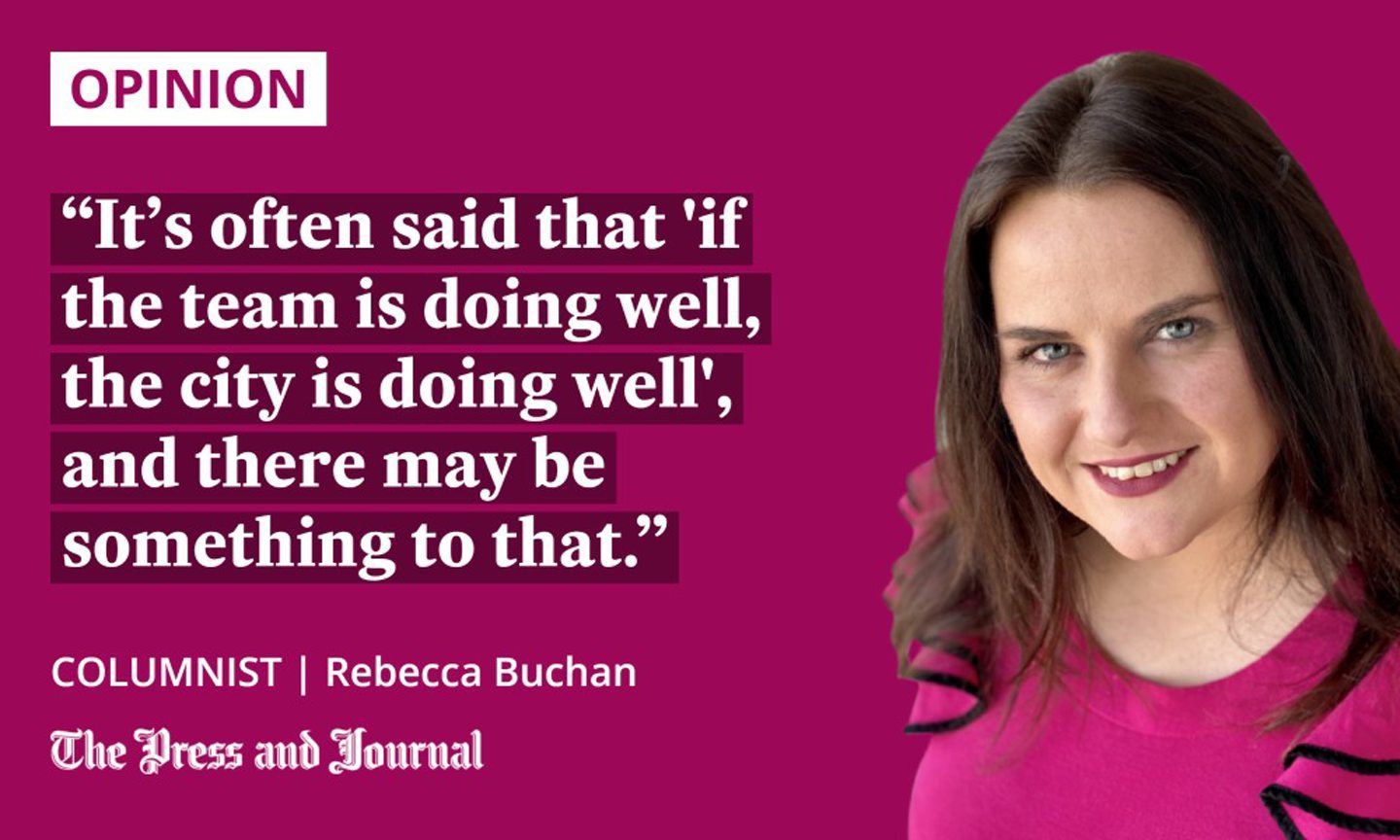
Growing up in the north-east of Scotland, football – and, in particular, which team you supported – was pretty important. It could define friendship groups, or determine whether you were picked last in a game.
If you had asked me when I was four, I would have told you I supported Rangers, because I was going through a phase where I liked everything that started with the letter R. But, my dad soon explained to me that it’s important to follow your home team.
These words have stayed with me. As a city with only one main club, Aberdeen fans unite with a common thread – not just the game, but the place.
As Dons fans, we no longer have the luxury of regularly being dubbed champions. But, when we taste success, the feeling of pride doesn’t stop within the team – it reverberates across the whole city.
Footballers instil pride – even if you’ve never been to Pittodrie
In 2014, almost 100,000 people flooded Union Street to cheer on the Dons, who were taking home the Scottish League Cup – 19 years after the Coca-Cola Cup win. Scores of people, young and old, packed the Granite Mile, faces painted red and white, clad in football strips, and singing along to Dons classics.
And, while there will have been many a fan in that crowd, some of those standing and cheering on the sportsmen atop an open top bus may never have stepped foot inside Pittodrie before, nor ever eaten one of the ground’s famous pies.
This is because you didn’t need to be a football fan to celebrate that day. The club had created an overwhelming sense of civic pride which could be felt around the city.
It’s often said that “if the team is doing well, the city is doing well”, and there may be something to that.
Legacy deserves freedom of the city honour
Next week, councillors will vote on whether or not to give the freedom of the city to Aberdeen FC. It is considered the highest civic accolade, and it is proposed that the Dons receive it to coincide with the 40th anniversary of the team’s greatest victory – their 1983 European Cup Winners’ Cup triumph over Real Madrid.
The proposal has been somewhat controversial, with many saying AFC should have received the honour at the time “when they deserved it”. There are also concerns that the club could receive it instead of brave NHS workers, who were our backbone during the worst of the coronavirus pandemic.
Now, there is no argument here – of course, our healthcare workers should be honoured. But why does this have to be a case of one over the other?
The Dons have been part of Aberdeen’s legacy for almost 120 years
Recipients of the freedom of Aberdeen are supposed to have “served the city in some exceptional capacity”.
The Dons have been part of Aberdeen’s legacy for almost 120 years. They have never been relegated from the top division of the Scottish football league since they were promoted in 1905, and they have won four Scottish league titles, seven Scottish Cups and six Scottish League Cups.
They are also the only Scottish team to have won two European trophies, having taken home the Cup Winners’ Cup and the European Super Cup. Yes, these accolades may be dated, but they have stayed with the people who support the club.
Don’t write off Dons contribution
To this day, I still hear people talk about the Gothenburg win with a huge sense of pride. That pride is not just for the team, but for its home city.
Denis Law, Aberdeen’s favourite son, was 77 years old when we awarded him the freedom of the city. We still thought he was worthy of it then, though it had been years since he had scored any goals.
While the club’s start to the season may not have been the best, that does not diminish the importance of its history, nor the pride it has conjured and the sense of local identity it has created.
To award Aberdeen FC freedom of the city can only remind us of that.
It has been a difficult few years, there is no denying that, and it is indeed important to acknowledge past struggles – but we also need to celebrate the things that unite us.
Rebecca Buchan is City and Shire Team Leader for The Press & Journal and Evening Express
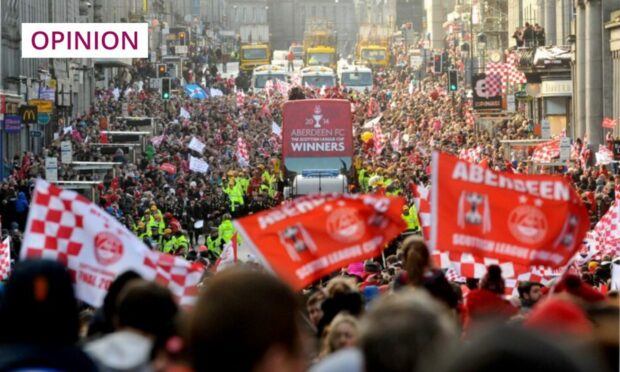
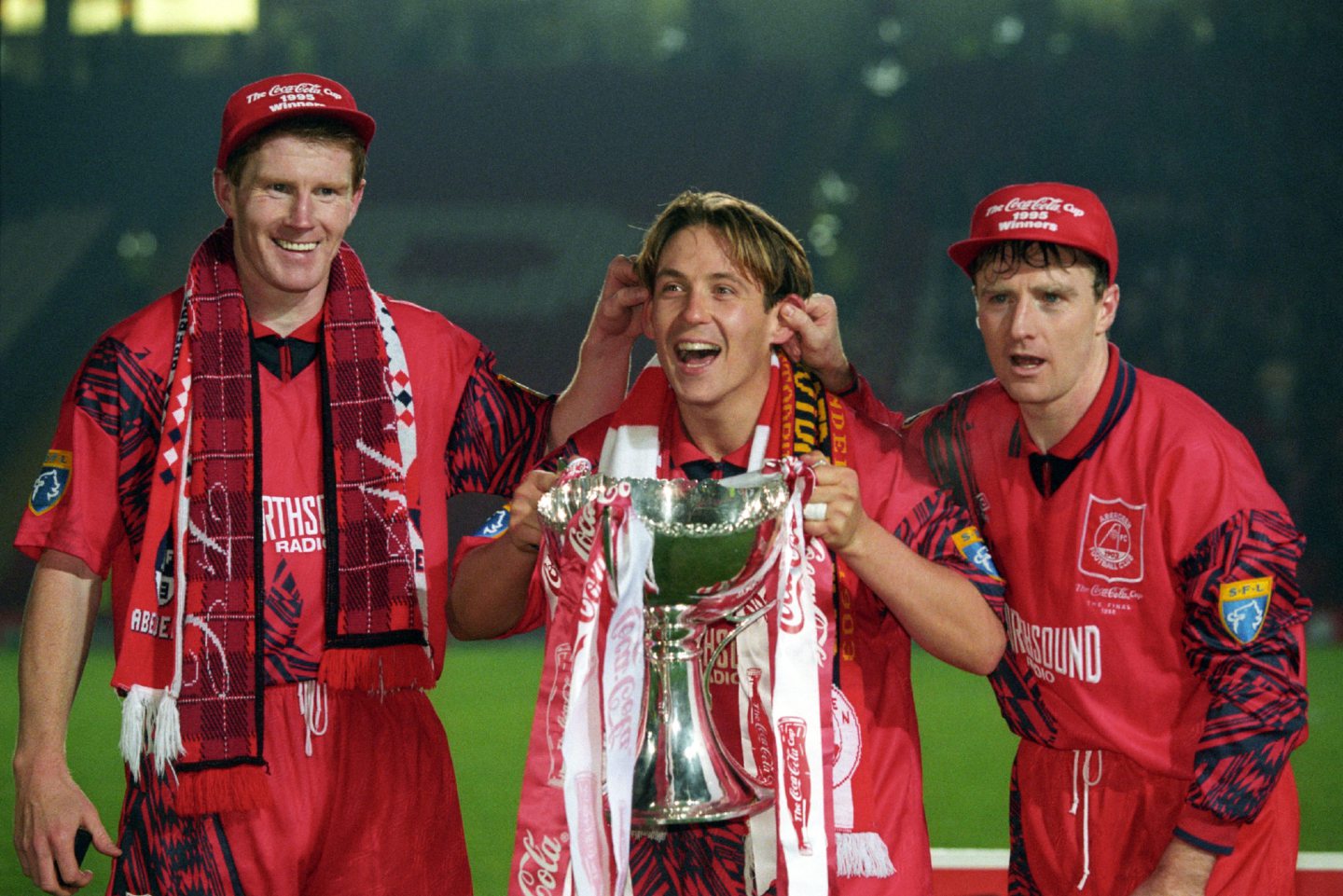
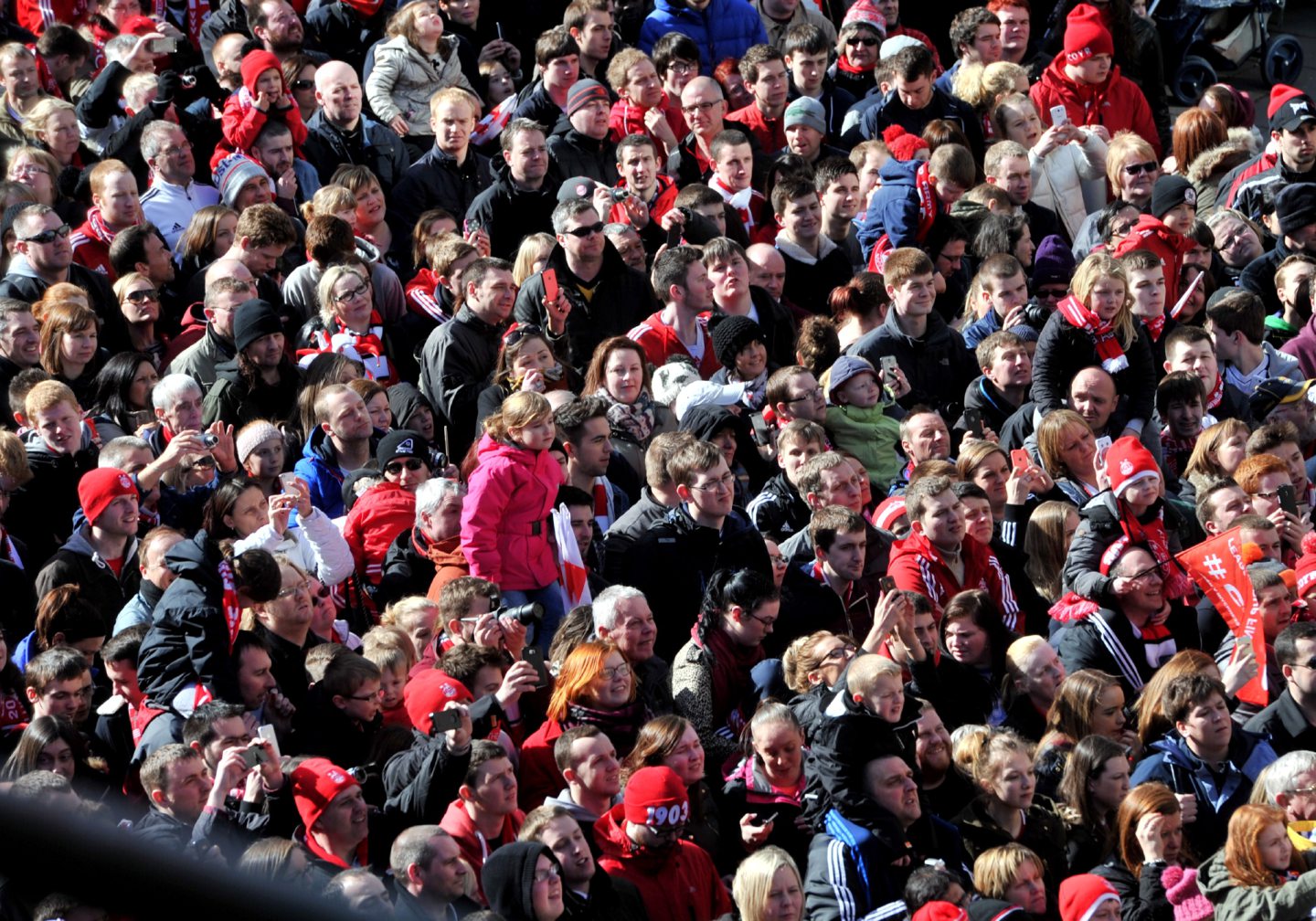
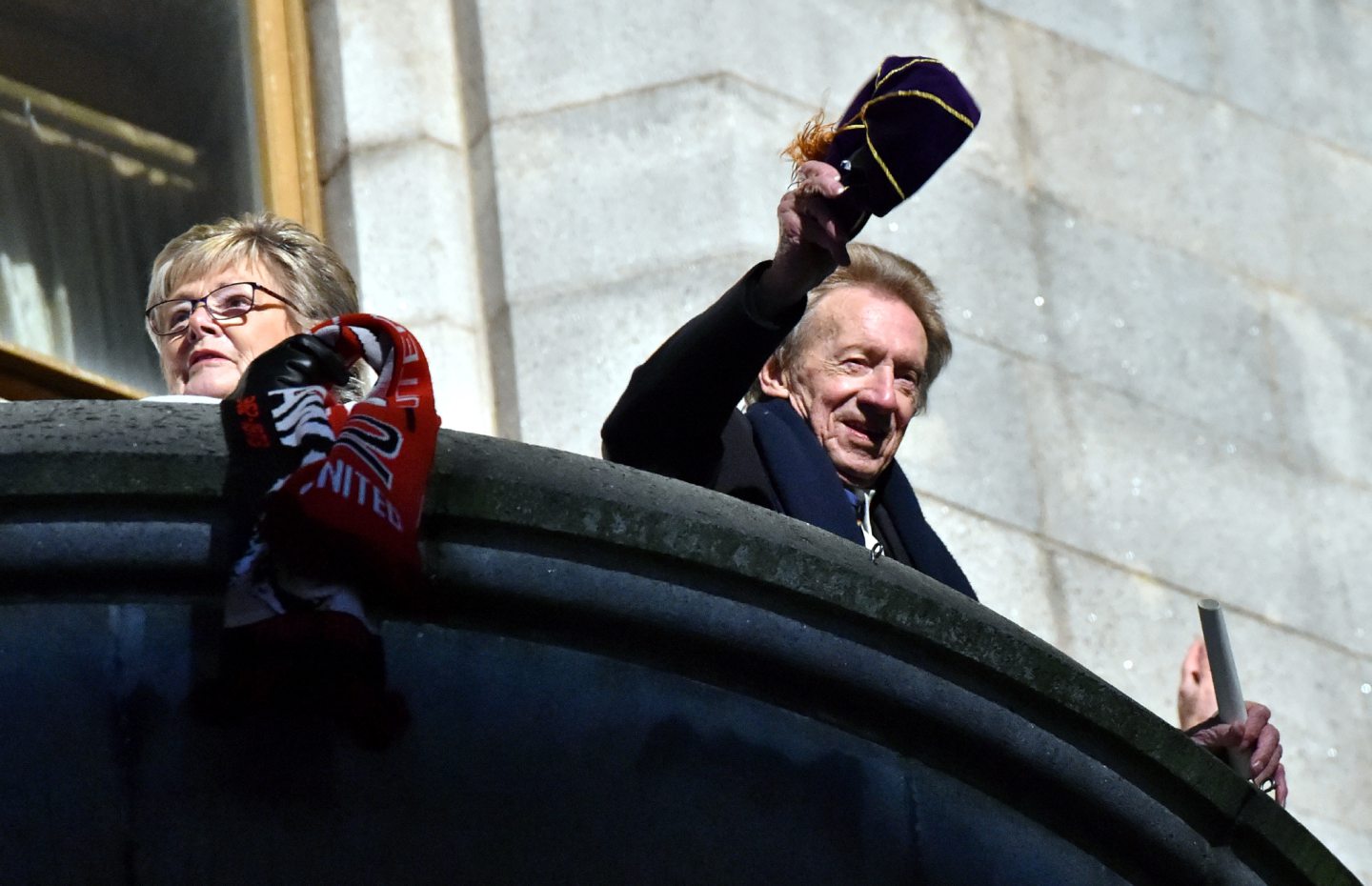
Conversation